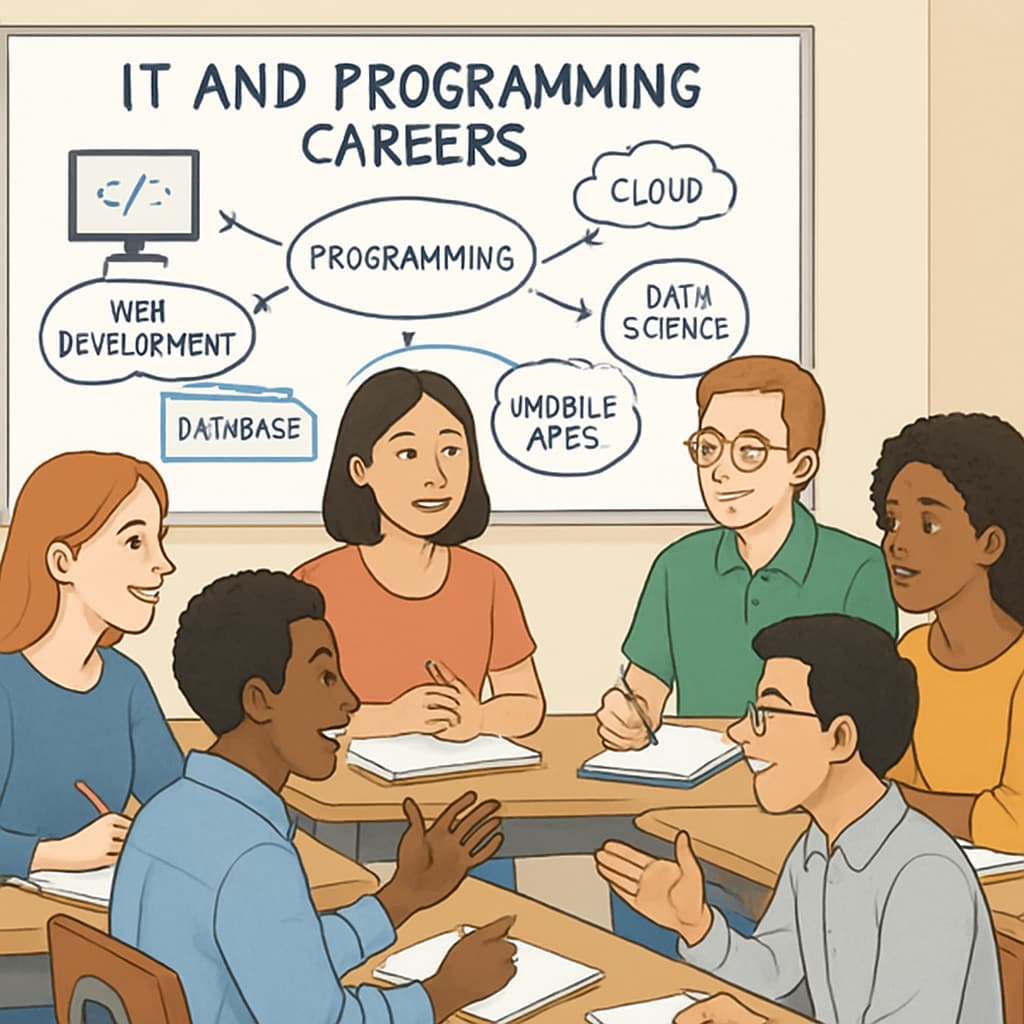Entering college often marks the beginning of a transformative journey, especially when choosing a career path. For freshmen exploring options like IT, programming, or technical fields, the decision can feel overwhelming. To help guide your choices, this article focuses on industry trends, personal interest alignment, and career prospects. Whether you’re passionate about coding, networking, electrical systems, or workplace safety, understanding these factors can help shape your college experience and future career.

Industry Trends: Understanding the Evolving Landscape
Before diving into specific majors, it’s crucial to consider the current and emerging trends in technology. The IT and technical sectors are consistently evolving, with advancements in artificial intelligence (AI), cybersecurity, cloud computing, and Internet of Things (IoT). These innovations are driving job growth and reshaping industries.
For example, programming continues to be a highly demanded skill, with languages like Python and JavaScript leading the way. Similarly, networking professionals are essential as businesses increasingly prioritize secure and efficient IT infrastructures. Electric and instrumentation engineers are vital for industries like energy and manufacturing, while occupational safety experts ensure workplace compliance and risk management.
To stay informed about these trends, reliable resources such as Wikipedia’s IT overview and Britannica’s networking insights offer valuable perspectives.
Aligning Your Interests with Career Paths
Choosing a major is not just about market demand—it’s also about personal fulfillment. Assessing your interests is a critical step in this process. Ask yourself: Do you enjoy solving complex problems? Are you drawn to creative projects like app development? Or do you prefer working with tangible systems like electrical circuits or industrial machinery?
Here are some interest-based considerations:
- IT and Networking: Ideal for those who enjoy system design, troubleshooting, and cybersecurity.
- Programming: Best suited for creative thinkers who love coding and software development.
- Instrumentation and Electrical Engineering: Perfect for hands-on learners who work well in technical environments.
- Occupational Safety and Health: Suitable for individuals passionate about workplace safety and regulatory compliance.
Taking aptitude tests or exploring introductory courses can also help narrow down your options.

Evaluating Career Prospects and Long-Term Goals
While interest is important, career prospects should also play a significant role in your decision-making. Research job availability, expected salary ranges, and growth potential for each field. For instance, IT professionals often enjoy competitive salaries and opportunities to advance into leadership roles.
Programming careers, especially in software development, offer flexibility and creativity, with high demand for skilled developers. Instrumentation and electrical engineering roles provide stability in manufacturing and energy sectors, while occupational safety professionals contribute to critical roles in compliance and risk management.
Additionally, consider long-term goals. Some fields, like programming, allow for remote work and freelancing, while others, such as engineering, may require on-site involvement. Understanding these dynamics can help you plan your future more effectively.
Practical Tips for Freshmen
Here are some actionable tips to help you navigate your decision:
- Explore Introductory Courses: Many universities offer beginner classes in IT, programming, and engineering. Use these to gain firsthand experience.
- Seek Mentorship: Connect with professors, industry professionals, or alumni to gain insight into various fields.
- Participate in Clubs and Competitions: Joining coding clubs, engineering societies, or safety organizations can provide practical exposure.
- Internships and Projects: Hands-on experience is invaluable. Look for internships or projects related to your field of interest.
Ultimately, your career path should align with both your passions and practical considerations. By focusing on industry trends, personal interests, and career prospects, you can make informed choices that set the foundation for a successful college journey and future profession.
Readability guidance: Short paragraphs and lists enhance readability. Active voice improves clarity, while overuse of jargon is avoided to ensure accessibility for new students. Transition words like “however,” “therefore,” and “for example” are used throughout the text to maintain flow.


